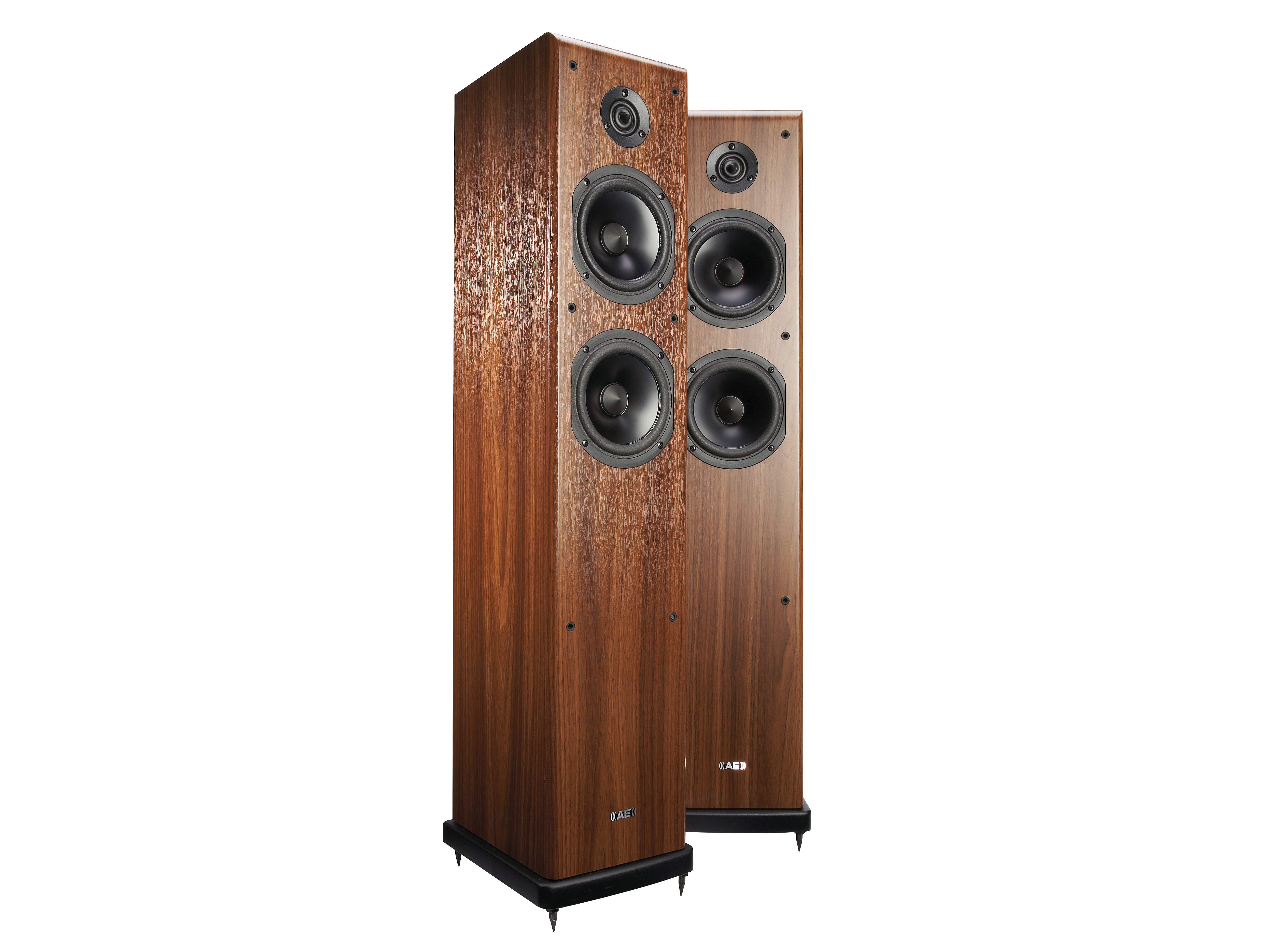TechRadar Verdict
A pretty floorstander with separate plinth and classy tweeter
Pros
- +
Fine neutrality and openness
Wide dynamic range
Imaging better than most
Bass deep and powerful
Cons
- -
Sound deteriorates at higher levels
Lacks some dynamic tension and expression
Why you can trust TechRadar
Acoustic Energy came to prominence in the 1980s with the tiny Pro-look AE1, which brought considerable credibility both to tiny speakers and the use of metal diaphragms. Since then, the company has grown, been bought by Malaysian interests, and expanded its ranges considerably, while continuing to maintain its identity through using metal cone drivers with characteristic pointy central dust covers.
The vinyl-finished, budget-price Aegis series originally began in the late 1990s, evolved into Evo versions in 2002, and has now taken a further evolutionary step by introducing the Neo range. In this context, 'Neo' stands for the rare earth element neodymium, which (combined with other elements) is one of the more recently developed permanent magnet alloys.
Weight-for-weight, neodymium magnets are much more powerful than regular ferrite ones, allowing for a much less bulky motor. They're also costly, which is why they have hitherto been largely restricted to tweeter use.
The important feature of AE's new Neos is that the bass and bass/mid drivers also use neodymium magnets, which are claimed to improve linearity and reduce distortion compared to ferrite designs.
Like its Evo predecessor, the Aegis Neo 3 is a compact 'two-and-a-half-way' floorstander, though unlike the Evo is uses nominally identical 130mm drivers for both bass-only and bass/mid duties. Both these drivers have 100mm diameter metal cones and operate in their own rear-ported sub-enclosures. The tweeter is one of those classy annular 'ring radiator' types, 25mm in diameter.
Our samples arrived with the lowest box cavity mass-loaded, though this is not a standard feature now, and must be added by the end user. It's also supplied with a plinth and decent 8mm spikes, to improve the stability and enhance the appearance. Twin terminal pairs provide a bi-wire option.
Even when placed well clear of walls, the Neo 3 delivers more than ample bass output, so free-space siting is clearly mandatory with this model. However, if the bass proves too heavy in the specific room and/or chosen location, it might be worth experimenting with blocking one or other (or both) of the two rear ports - these have differential tuning (see lab report), and the trick is to try and avoid exciting the room's own natural standing wave modes, which of course vary from room to room.
This floorstanding Neo sounds clean, crisp and open, with good overall neutrality, fine control and plenty of detail. Imaging was particularly good, showing precise focus with decent depth and superior stability. The sound does lack some dynamic tension and expression, though the dynamic range is rather good, and there's also more authority and weight here than one normally encounters among low cost speakers.
Despite that weight and gravitas, the overall character is a little on the cool side of strict neutrality, and some extra warmth through the upper bass and lower midband might have been welcome. Coloration is generally low and the voice band is essentially clean, despite a touch of audible nasality and hardness. That unusual tweeter certainly contributes to an impressively high level of detail, but the sound can get a little harsh and edgy when some material is played at high levels.
Tech.co.uk was the former name of TechRadar.com. Its staff were at the forefront of the digital publishing revolution, and spearheaded the move to bring consumer technology journalism to its natural home – online. Many of the current TechRadar staff started life a Tech.co.uk staff writer, covering everything from the emerging smartphone market to the evolving market of personal computers. Think of it as the building blocks of the TechRadar you love today.
